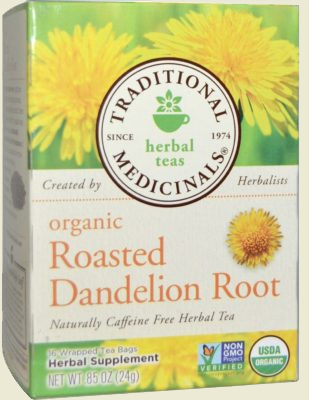Denial as a Defense Mechanism
For example, some selection bias might have occurred, and the low rates of current alcohol and drug use by participants may indicate that only the more successful or motivated OH residents participated and completed the necessary measures. It is also possible that because all participants were existing OH residents, these individuals might be in a later stage of recovery, thereby reducing and variation https://sober-home.org/pregabalin-wikipedia/ within substance use. Perhaps, future research assessing self-deception should consider a sample with more variability with regard to substance use and stages of recovery. It is suggested that substance abusing individuals look to 12-step programs such as Alcoholics Anonymous and Narcotics Anonymous to reduce denial and gain a realistic self-view, critical steps in addiction recovery.
Mental Health
The present study examined how recovery processes (12-step programs vs. recovery residence), substance use, and race/ethnicity predicted self-deception among adult residents of self-run recovery homes (359 men, 152 women). If you are in denial, it often means that you are struggling to accept something that seems overwhelming or stressful. However, in the short term, this defense mechanism can have a useful purpose.
Denial As A Defense
A cursory review of tolerance reports over the years in SDPS AUD probands indicated that this variable had been endorsed by AUD probands at age 35 at a rate similar to the current AUD offspring. However, the proportions of probands who reported tolerance in the five years prior to interview decreased steadily with each subsequent interview. The key aspect of the tolerance question used here might be the emphasis on the recent five-year period. It is possible that self-perceived tolerance might be strongest at younger ages when drinking is escalating but might not be as apparent as individuals maintain and decrease the maximum drinks with advancing age.
- Simply select your manager software from the list below and click Download.For more information or tips please see ‘Downloading to a citation manager’ in the Help menu.
- Remind them that admitting the need for help is the first step towards recovery.
- Overcoming the legacy of a parent’s alcoholism may be difficult in part because there is a long history of denial.
- Recent studies suggest that the same areas of the brain affected by addiction may be responsible for self-awareness.
How to help a loved one in denial
Often, when confronted about their drinking habits, individuals in denial may brush off the concerns or downplay them as insignificant. They might say things like, “Let’s not make a big deal out of it,” or “I just enjoy a few drinks; it’s not like I have an addiction.” When we are discussing addiction, we often come across the term alcoholism addiction. It is a common issue in the recovery journey from alcohol addiction and can hinder progress towards sobriety. When you bring up drinking around someone living with alcohol use disorder, they may act as though your concerns are trivial. When you’re worried about being judged or confronted about something, honesty can take a back seat.
But denial is not just something seen in the alcoholic, denial is also common in those living with an alcoholic. A more appropriate way to screen patients for alcohol impairment would be to use a standardized and more detailed review of patterns of drinking and alcohol-related problems such as the ten item AUDIT. This instrument takes only a few minutes complete and can be filled out by patients in the waiting room (Babor, 2001; Sanchez-Roige et al., 2019). Such standardized approaches might be especially useful for identifying high functioning individuals with AUDs whose SES might erroneously imply that they are less likely to have alcohol problems. Avoid being judgmental, but show support and offer suggestions about ways or places they can get help.
In active addiction, denial can be a powerful dynamic for the person with alcoholism as well as loved ones, building up subtly over time as everyone goes into survival mode in order to make it through the next crisis. Denial can show up as defiance (“I can quit drinking whenever I want to”); denial can show up as blame (“The only reason I drink is because you …”); and denial can show up as deceit (“I swear I only had two drinks”). A professional interventionist has expertise https://sober-house.net/eye-color-may-be-linked-to-alcohol-dependence/ in addiction treatment, family systems and what’s involved in encouraging an alcoholic or addict to enter treatment. HFAs personally experience strong and lasting denial, but their loved ones and social set are not immune to this phenomenon. Many HFAs report their families were in denial of their alcoholism which is referred to as “secondary denial” or being aware that someone is alcoholic but struggling to accept it or thinking that his or her alcoholism isn’t that serious.
She was also darkly depressed and felt isolated, though family and friends say they tried to reach her. On the other hand, those around her were willing to help turn her resistance to rehab into a financially profitable pop tune. Lucre for them on the back of her suffering, though she was a willing partner in this public display of self-harm. The term “enabling” is used to refer to any action used in support of the alcoholic’s behavior. Dealing with an alcoholic may seem impossible when the alcoholic denies there is a problem and it may seem easier to just give the alcoholic what they need to go on with the day, but enabling will never stop alcoholic behaviors.
Not only were the mice’s brains organised differently, but their behaviour and motor skills differed too. Offspring of alcohol-exposed fathers were more likely to fall and take missteps, more hesitant to move around, and took longer to learn how to stay on spinning bars. “Their learning trajectory is a little slowed. That has to do, we think, with perhaps a little hyperactivity, and just problems with sensory motor integration.”
If denial is causing problems or preventing you from dealing with a physical or mental health condition, consider talking to a professional or joining a support group. Like other defense mechanisms, denial functions as a way to protect you from experiencing anxiety. In some cases, it might be a way to avoid dealing with stress or painful emotions. By refusing to deal with or even admit that there is something wrong, you are trying to prevent facing stress, conflict, threats, fears, and anxieties.
Furthermore, self-deception may be critical to African Americans’ ability to develop a healthy and pluralistic self-concept in US society,49 which could help explain why African Americans had higher self-deception scores than the other groups in the present study. However, few studies have examined the self-deceptive enhancement subscale of the BIDR with non-European American groups, and the relationship between race/ethnicity and self-deception is an area that merits further exploration. Another interesting finding related to the overall differences across generations regarding the specific criteria items endorsed by AUD probands and AUD offspring in the first data columns of Tables 1 and and3.3. One striking finding involved the 4% of AUD probands overall who admitted to tolerance in the prior five years compared to 57% who endorsed tolerance in AUD offspring.
Participants from previous studies included traditional treatment samples whereas participants in the present study were residents of a self-run communal living setting. Perhaps, the course of recovery and self-discovery may be different for adults involved in different https://soberhome.net/5-expert-tips-to-quit-benzos-for-good-fhe-health/ treatment modalities. Future research might examine changes in self-deception over time adults residing in communal recovery settings versus traditional in/out-patient facilities. Race/ethnicity also significantly predicted self-deception scores over time.
Results from the present study demonstrated that days attending 12-step meetings was a significant predictor of less self-deceptive enhancement, and that high self-deceivers attended significantly fewer 12-step meetings than low self-deceivers. However, contrary to predictions, days spent in a mutual-support residence (ie, OH) did not significantly predict less self-deception, and low versus high self-deceivers did not differ on OH residency. In addition, the combination of the 2 mutual help programs did not have an additional effect on decreasing self-deception perceptions. As it is believed that 12-step attendance and OH residency are less sensitive and stigmatized constructs, we do not believe that participants were prone to misrepresent (ie, exaggerate) these variables. It is certainly possible that individuals who attended more 12-step meetings simply differed on self-deception, and that 12-step attendance did not actually lead to decreases in self-deception. However, we suggest that 12-step groups placed more emphasis on facing reality through self-identification with the disease and making amends to others, thereby creating a stronger association with self-deception.



